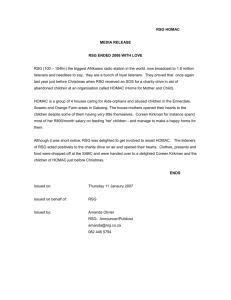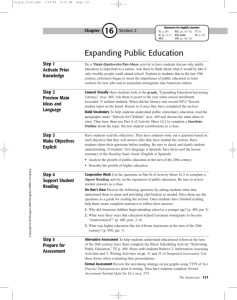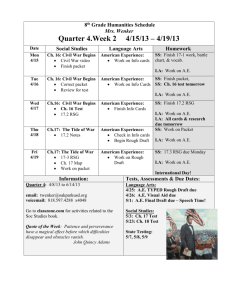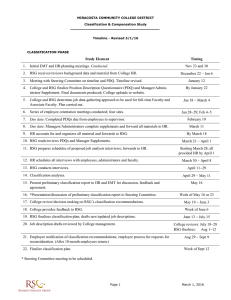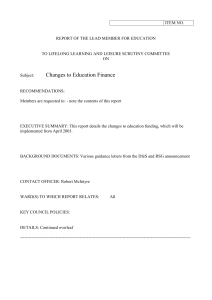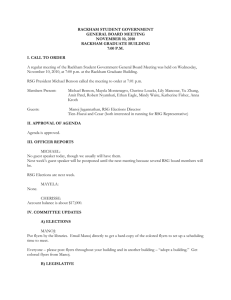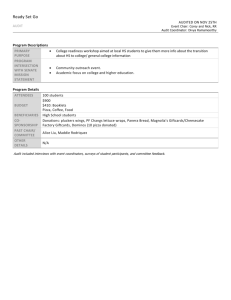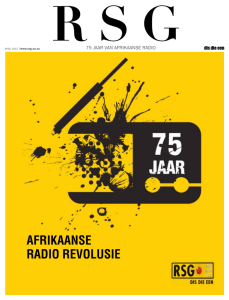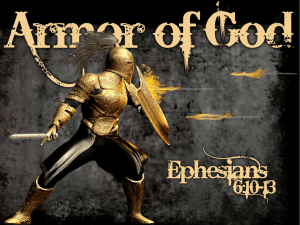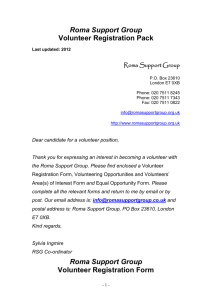Faith and Learning in RSG Courses
advertisement
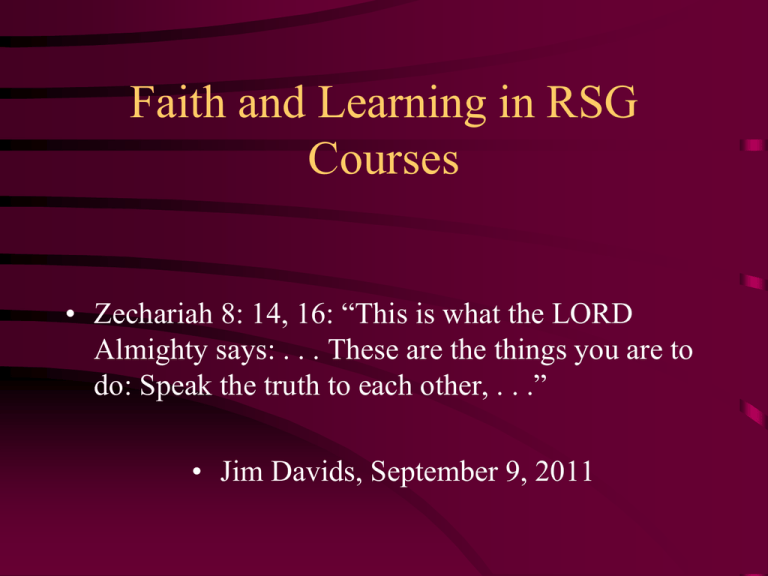
Faith and Learning in RSG Courses • Zechariah 8: 14, 16: “This is what the LORD Almighty says: . . . These are the things you are to do: Speak the truth to each other, . . .” • Jim Davids, September 9, 2011 Setting a Firm Foundation • Cornerstone or Worldview course: Initial focus is on truth and the inevitable demise of post-modernism. Then we focus on Creation, Fall, Redemption and their application to government/politics, law, economics, social organizations, history, and art. At the end of the course students can identify the major worldviews operative in the United States today and how they lead to positions on social questions Building on the Foundation I • In my first week of each course, I have the online students read four written Worldview lessons: (1) The definition and components of worldview; (2) the Sovereignty of God and His creation of separate spheres of sovereignty (self-government, family government, church government, and civil government) . . . . Building on the Foundation II • (3) the biblical basis of law; and (4) the positive societal benefits of Christianity. I then ask students to critique and apply these principles in Bb discussion. One such question asks students to determine which sphere is sovereign with respect to hurricane relief, education, retirement pension planning, homeland defense, etc. Other Examples in RSG I • Faith integration begins with my introduction and posting of my personal Christian testimony and I encourage students to post similarly as well. • Each class on line or on campus begins with a devotional which incorporates Scripture. • Other Examples in RSG II • All assignments (discussion boards, exams and papers) contain explicit learning objectives on the integration and application of biblical faith-based leadership principles. Students discuss the application of key servant leader principles and the associated barriers to faith integration in secular settings as well as strategies overcoming the obstacles. Other Examples in RSG III • A second colleague reports that she: • Includes a video devotional along with her other lectures. • Asks for student volunteers to contribute a video devotional or short video prayer for the class to be included in the week's materials. Other Examples in RSG IV • Spends a week in class talking about what it means to be a Christian scholar and how one's worldview affects one's scholarship and how one communicates Christian concepts and values in a secular context. • Presents ethical scenarios as "What would you do if you were asked to lie to a family member/forge a visa/aid someone in their drug habit in order to get information, etc.") Other Examples in RSG V • Asks in a class regarding Disaster Relief about "how can a good God visit suffering or allow the infliction of suffering on his people" and explores the notion that disaster is a sign of God's wrath. • Asks in a Terrorism class questions about the ethics of warfare, what it means to conduct just war, and the ethics of torture.
